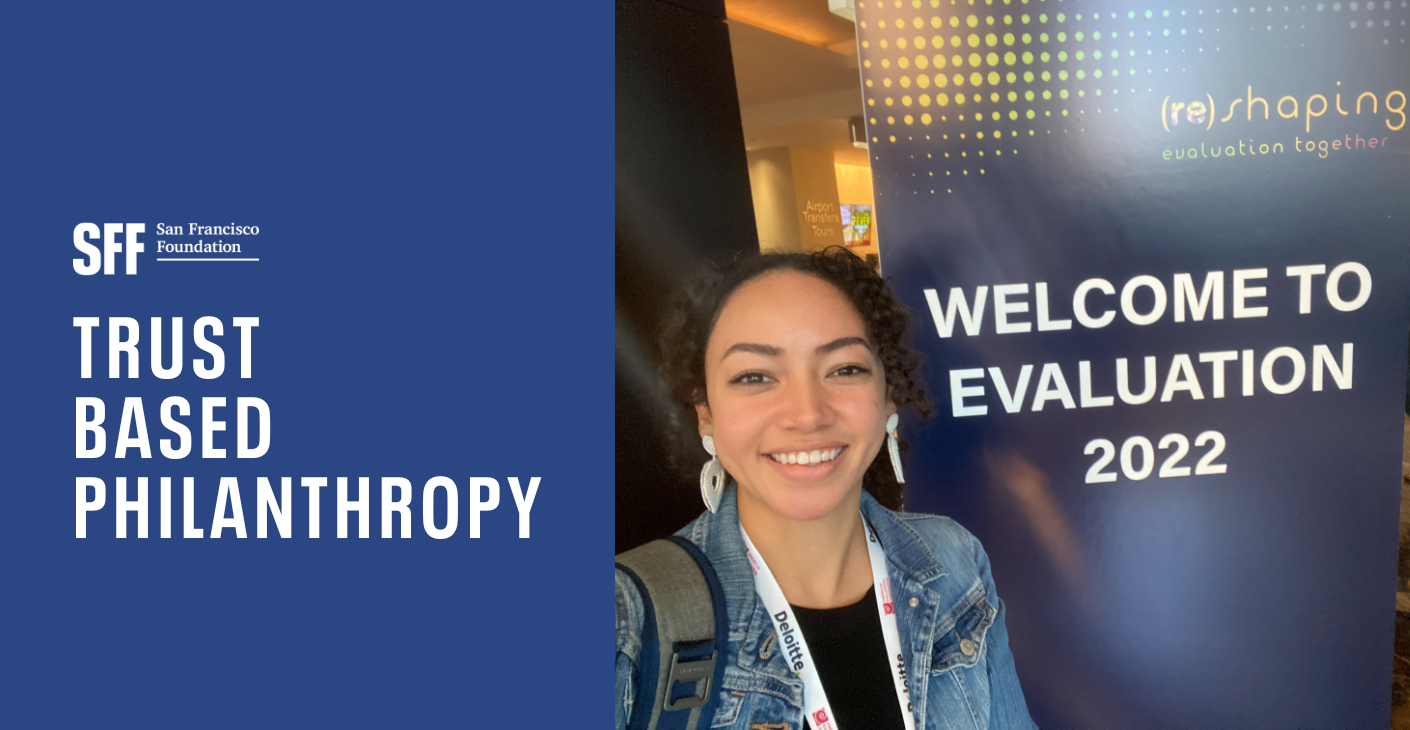Within the San Francisco Foundation, we have been working to address some of the systemic inequalities in the philanthropic sector by adopting the tenets of Trust-Based Philanthropy. Savannah Rae, SFF Program Associate to the Chief Impact Officer, recently presented at the American Evaluation Association conference on a panel called Trust-based Philanthropy and Robust Learning & Evaluation: Oil and Water or a Match Made in Heaven?
Ms. Rae joined panelists from the California Endowment and the Hartford Foundation for Public Giving. Together, they discussed how their Foundations have improved their evaluation and learning operations to better center equity values and redistribute power. The panelists shared three frameworks that have guided their approach: Trust Based Philanthropy (TBP), Emergent Learning (EL), and the Equitable and Evaluation Framework (EEF).
Some key themes emerged as panelists reflected on the work:
- Reducing the burden on our grantee partners sometimes means increasing workloads for foundation staff. This is true for both learning and evaluation teams and program staff. Staff at these organizations were largely happy with the changes, but it was important to note that workloads and capacity needed to be considered.
- Internal and external evaluation teams and philanthropic organizations need to be on the same page about trust-based philanthropy and impact assessment. As the field of evaluation continues to evolve, it is clear that some philanthropic organizations appear to be giving lip service to trust based philanthropy, but continue holding onto traditional ideas of evaluation and impact.
As Ms. Rae shared with the panel, “. . . as SFF changes some of our core evaluation and learning practices, I want to remind the folks in this room that the sky has not fallen. It can be really uncomfortable to change long-standing practices, but we continue to be rigorous in determining how we can make the most impact. We are reimagining the purpose of our evaluation and learning practices.”
Learn more:
- Presentation slides from the “Trust-based Philanthropy and Robust Learning & Evaluation: Oil and Water or a Match Made in Heaven? session
- Evaluation and trust-based philanthropy resources: A Trust-Based Framework for Learning & Evaluation in Philanthropy and Toward a Trust-Based Framework for Learning and Evaluation
- The American Evaluation Association prioritizes the advancement of evaluation best practices in multiple types of evaluation. It has over 5,000 members representing all 50 states and more than 80 foreign countries


